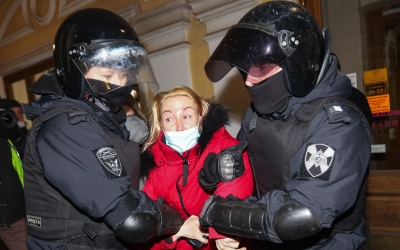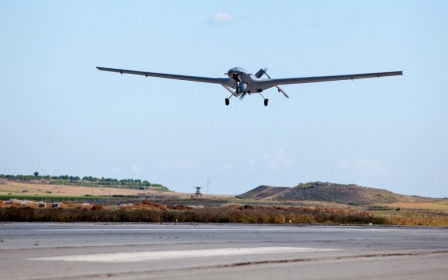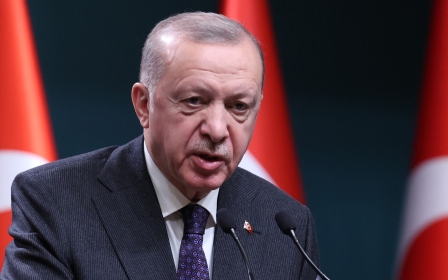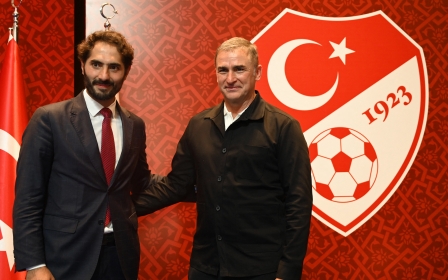Russia-Ukraine: Erdogan calls on Putin to make 'honourable exit' from war
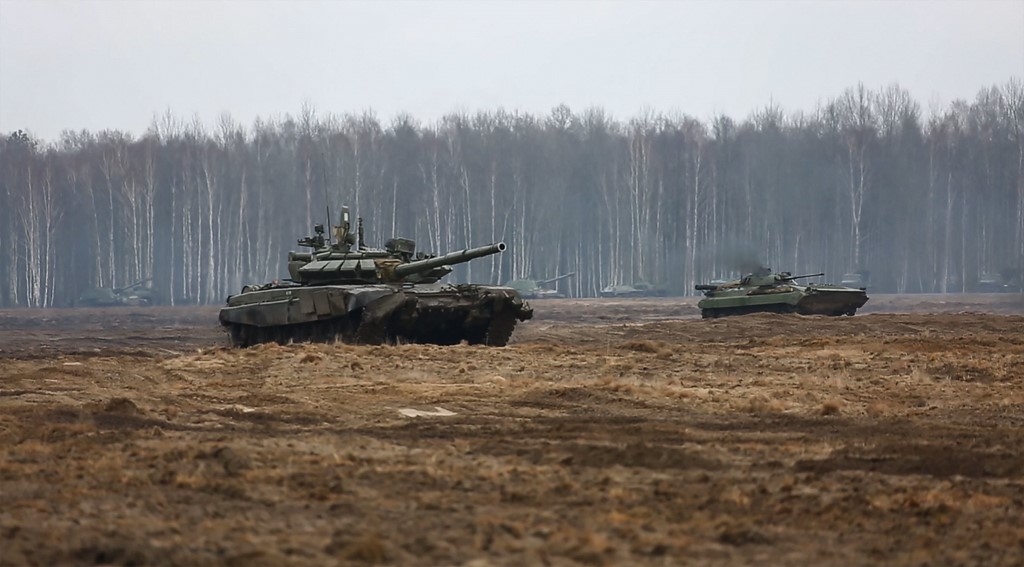
Turkish President Recep Tayyip Erdogan has called on his Russian counterpart Vladimir Putin to make an "honourable exit" from the war in Ukraine, as the conflict continues to rage.
Speaking to reporters in Brussels during a Nato summit on Thursday, the Turkish president said he would be talking to Putin at the weekend to try and convince him to end the fighting in Ukraine.
“I will look for ways to end this issue by telling him to become an architect for peace and make an honourable exit,” Erdogan told the journalists who accompanied him.
'There is no consensus with Russia on the four points'
- Dmytro Kuleba, Ukrainian foreign minister
He added that Ukraine and Russia had reached a partial understanding on four of their six areas of disagreement. Later on Friday, Ukraine denied an understanding was reached on those issues.
Erdogan said that Ukrainian President Vlodymyr Zelensky was likely to end Ukraine’s bid for Nato membership and recognise Russian as one of Ukraine's official languages.
New MEE newsletter: Jerusalem Dispatch
Sign up to get the latest insights and analysis on Israel-Palestine, alongside Turkey Unpacked and other MEE newsletters
“Ukraine also expressed that it could make some concessions on disarmament,” Erdogan said.
“Of course it isn’t a complete disarmament. Ukraine also expressed a positive attitude towards the collective security demands.”
The Turkish president said the main point of contention between the two countries was the status of Crimea and the separatist-controlled regions of Donbas and Luhansk.
“I think Zelensky made a good move by offering a referendum" on these regions, Erdogan said.
Ukrainian Foreign Minister Dmytro Kuleba countered the Turkish claims on Friday, saying: "There is no consensus with Russia on the four points".
"The negotiation process is very difficult. The Ukrainian delegation has taken a strong position and does not relinquish its demands. We insist, first of all, on a ceasefire, security guarantees and territorial integrity of Ukraine," Kuleba said in a post on Facebook.
Impact of sanctions
Due to worldwide sanctions, many international companies and Russian oligarchs have left Russia, with some ending up in Turkey.
Two super-yachts belonging to the sanctioned Russian billionaire Roman Abramovich docked in Turkish ports earlier this week. Istanbul has also become one of the main destinations for Russians fleeing their country.
Erdogan said Turkey would welcome any international companies leaving Russia.
“We will also keep our doors open to the capital groups that would like to park their potential in Turkey,” he said, without specifying whether that would be Russian capital - including that of the oligarchs - fleeing the country.
Turkey repeatedly said it would only impose UN sanctions, not specific unilateral sanctions against Moscow.
The Turkish economy is reliant on the income from Ukrainian and Russian tourists and this year experts expect a dramatic drop in arrivals.
However, Erdogan said Turkey and Russia were also negotiating a way to use the Ruble and Turkish Lira for tourism as Putin promised the Turkish leader he would encourage Russians to travel to Turkey.
He added that Turkey also couldn’t brush off its relations with Russia because of the interdependence on energy - he said he couldn’t abandon Turkish people to the cold and stop Turkish industrial work by cutting Russian gas imports.
“We are purchasing half of our gas from Russia,” Erdogan said. “We are building the Akkuyu Nuclear Energy Plant with Russia.”
Middle East Eye delivers independent and unrivalled coverage and analysis of the Middle East, North Africa and beyond. To learn more about republishing this content and the associated fees, please fill out this form. More about MEE can be found here.


